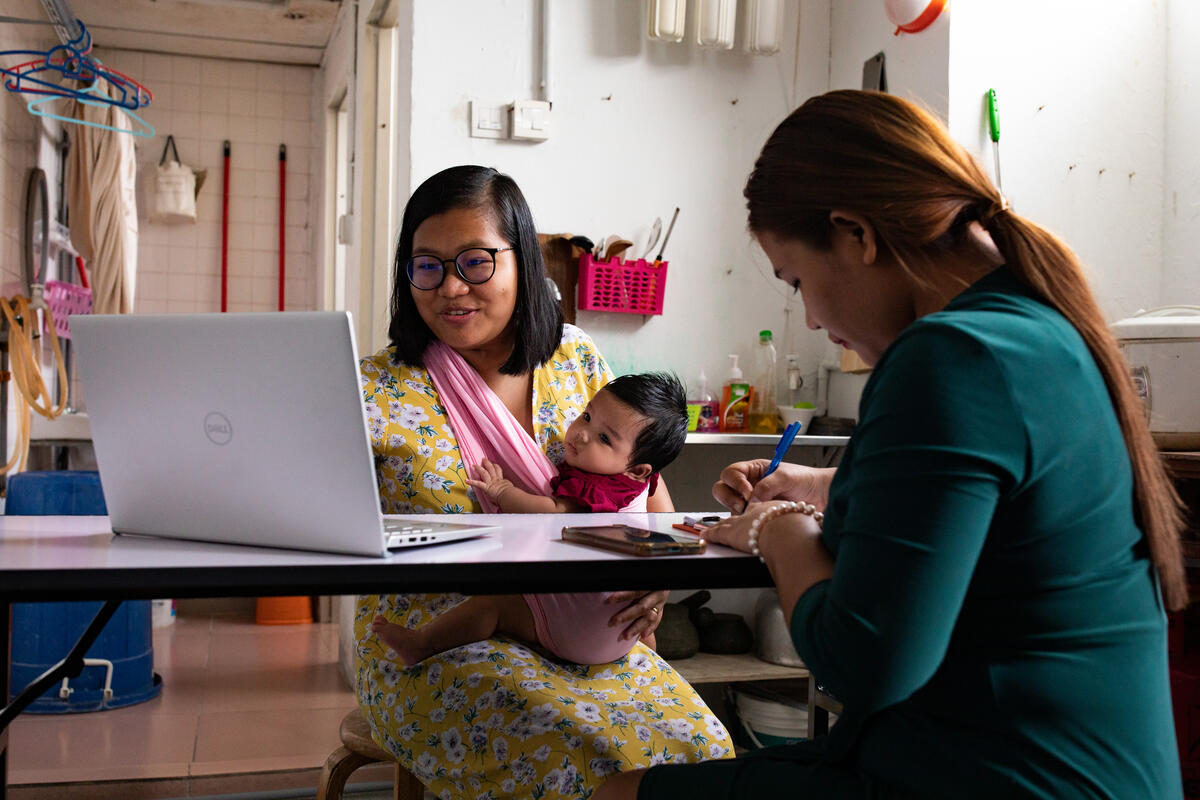Bringing The Clinic To The Patient - Creative Health Solutions For Displaced Persons
Bringing The Clinic To The Patient - Creative Health Solutions For Displaced Persons
KUALA LUMPUR, 22 June 2007 - If refugees are unable to go to clinics, then bring the services to the refugees, and effectively address potential public health problems.
It was with this in mind that the Embassy of the Czech Republic in Malaysia, the UN Refugee Agency (UNHCR) and the Malaysian Medical Relief Society (MERCY Malaysia) today signed a tripartite agreement to initiate a 9-month long Mobile Healthcare Clinic Project for refugees in Malaysia.
"Access to healthcare services is sometimes limited for refugees and asylum-seekers due to various factors such as costs of medical care, language barriers and difficulties in physically accessing hospitals and clinics," said Dr. Volker Türk, UNHCR Representative. "This mobile clinic project will enable healthcare services to reach refugees where they are.
"UNHCR is proud to have the Czech Embassy and Mercy Malaysia as partners in this humanitarian initiative."
Ms. Dana Hunatova, Ambassador of the Czech Republic in Malaysia said that the Czech Republic hopes that this mobile clinic project not only will bring benefit to refugees, but also draw more attention to the problems faced by refugees in the country.
"We understand the whole complexity of this issue and we hope that with this small contribution we are also helping Malaysia to tackle it" said Ambassador Hunatova.
"Foreign humanitarian aid is an integral part of the Czech Republic's foreign policy. In providing humanitarian aid, the Czech Republic collaborates with international humanitarian organisations, and one of them has traditionally been the UN High Commissioner for Refugees (UNHCR)."
"That is now the case of humanitarian aid for refugees who have come to Malaysia in a hope to find a temporary shelter in their difficult situation. However they are not given an opportunity to find legal employment here, they cannot send their children to school and they have limited access to basic healthcare."
"MERCY Malaysia is honoured to be chosen as UNHCR's implementing partner for the second time as we have worked with the esteemed organisation in 2003," said Datuk Dr. Jemilah Mahmood, President of MERCY Malaysia. "And based on our previous working experience that included providing primary healthcare through our mobile clinics for the Rohingya and Acehnese communities, we are confident that we will succeed in providing these medical services once again."
The project, due to take off on 1 July 2007, will be implemented by MERCY Malaysia from funding provided by the Czech Embassy, and will be jointly monitored by UNHCR and the Czech Embassy. During this initial 9-month period, mobile clinics will cover an estimated population of 1,000 refugees in the Klang area of Selangor.
This project does not aim to replace existing health services provided in Government and private clinics. Instead the project aims to complement and reinforce these services by bringing healthcare to refugees who, due to a variety of reasons, are unable to make the journey to the various clinics.
"Similar mobile clinics have been conducted by Non-Governmental Organisations such as the Buddhist Tzu-Chi and ACTS, with great success. The mobile clinics that will be run by volunteer doctors of MERCY Malaysia will reach a previously underserved community of refugees in Klang," added Dr. Türk
"This MoU-signing ceremony follows in the path of several other events held in conjunction with World Refugee Day 2007. It embodies the spirit of World Refugee Day that encourages cooperation among many stakeholders in the protection of, and assistance to refugees."






